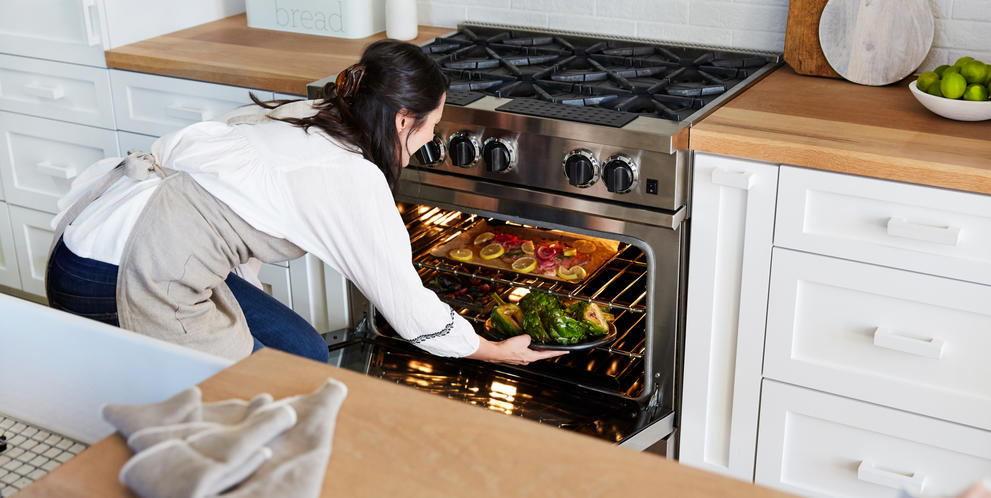Error message title

Error message title
Searching great energy plans for you
Gas vs Electric oven – which is more efficient to run?
For both your wallet, and the environment

Depending on your culinary skills or maybe it’s just your personal preference, you might be more inclined to choose a gas oven over an electric one. If you’re more of a Gordon Ramsey on the stove it’s likely, you’ll want to invest in a gas cooktop to give you the speed and control you want with your dishes. However, if you’re baking up a storm Katherine Sabbath style, you might want to be working with an electric oven to make sure those bakes are nice and even.
Perhaps you want to have it both ways? Either way, here’s our recipe for the most efficient cooking experience both for your wallet, and the environment.
Your choice of ingredients
Your electric oven is likely to be cheaper and easier to install as it just plugs into a power socket. A gas oven however is a little trickier to put in and may depend on the type of gas service you have at your house – natural gas supplied to your house from a network being the most convenient.
It’s worth bearing in mind that when gas ovens are fitted, or electric ovens are wired into the mains connection, they need to be installed by licensed tradespersons who provide you with a compliance certificate confirming adherence to regulations and that it has been safely tested.
The cooking method
Gas and electric ovens tend to use roughly around the same amount of energy per year but at the time of writing, wholesale and retail electricity tariffs are generally higher, making electric ovens slightly more expensive to run right now.
Gas ovens are also less complicated pieces of equipment, making them easier to repair – however as any gas cooker owner knows – they are a lot harder to clean.
Modern electric ovens are extremely efficient at heating up, making them a lot easier to use and their streamlined design makes them far easier to clean. They’re the smart choice for beginner cooks or those who want to just spend less time in the kitchen.
From a safety standpoint there can be issues with some electric cooktops when it comes to hotplates remaining hot for some time after cooking has finished, and with gas you’re obviously cooking with an open flame.
Keep the sleeves away from the burners chefs, and make sure you’ve got an eye on any little kitchen helpers!
Cooking efficiently
It doesn’t matter if you choose gas or electric, you’re still going to want to use them in the most environmentally and cost-efficient way. Here’s the top 5 things you need to be aware of:
- Make sure the oven door is properly sealed. Got an old model? Make sure you get it checked out.
- Make use of the shelves – try to cook multiple items in one go. Single tray recipes are incredibly efficient and can help with the next step.
- Bulk cooking can save you time and energy in the long run. Get a few things going and freeze leftovers for future enjoyment.
- No peeking! Roast potato experts will tell you this is the secret to getting an irresistible crunch, but it’s also a great way to save energy. Keep the door shut when the oven is on.
- If you have it, try using your fan-assist which can allow your oven to cook at a lower heat – using less power and energy.
Bon Appetit
The choice is up to you, with pros and cons on each side. It really depends on how you want to cook. However, if you want to have your cake and eat it, many appliance brands now offer hybrid models like stove tops with both gas and induction zones, or ranges with gas stove tops and electric ovens.
